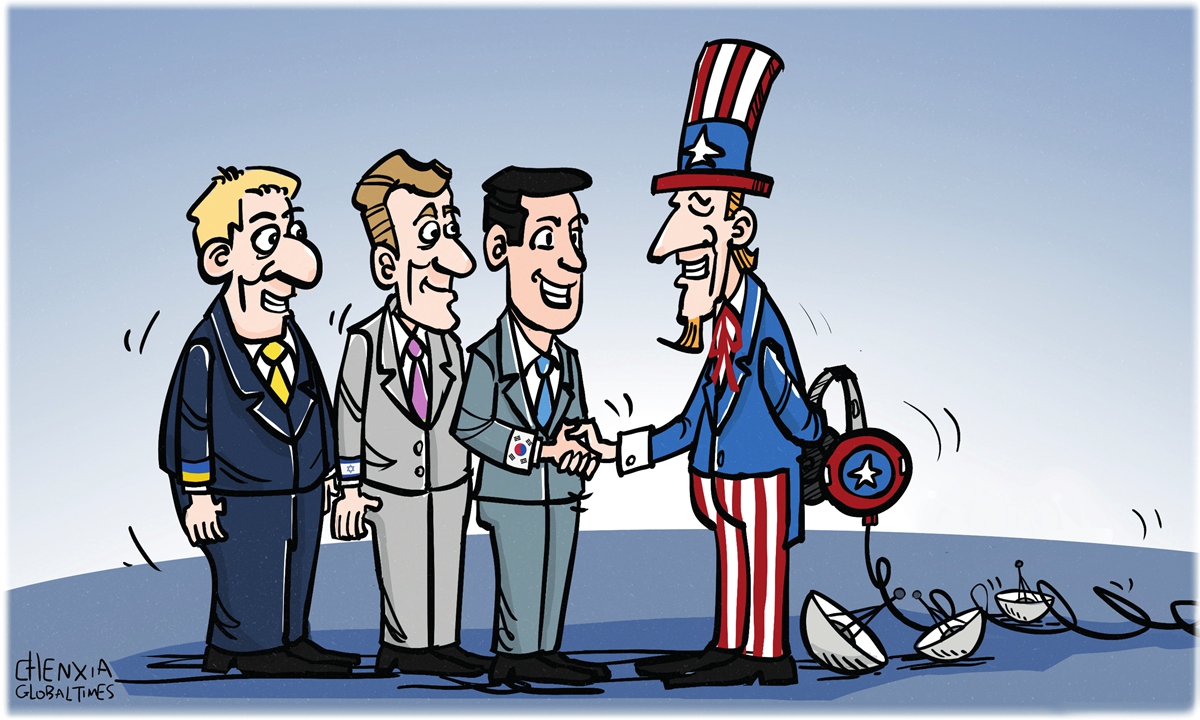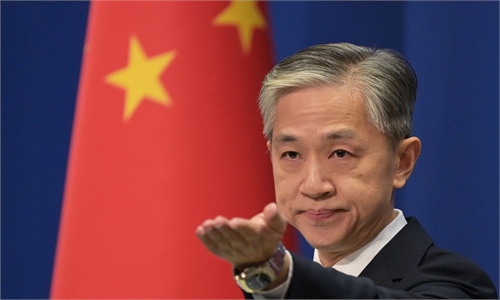Pentagon leaks show China's efforts to strengthen confidential works are effective

Backhanded. Illustration: Chen Xia/GT
The recently leaked Pentagon documents have caused an uproar in recent days. Among these documents, there is also intelligence collection about China. So what content do they include?According to CNN and other US media outlets, the leaked part at first shows that the US is concerned about China's relations with Russia and is worried that China would provide support for the Kremlin's war effort in Ukraine. An entry in one document says that China could use Ukrainian strikes on targets deep inside Russia "as an opportunity to cast NATO as the aggressor, and may increase its aid to Russia if it deems the attacks were significant."
In addition, it reveals that the US is monitoring China's weapons development and naval activities. It watches over China's February 25 flight test of a "developmental" DF-27, which it describes as an intermediate range ballistic missile-class multi-role hypersonic glide vehicle. Another entry includes notes on a recent People's Liberation Army Navy deployment of the Yushen LHA-31 helicopter-carrying assault ship.
Other documents suggest that the US is gathering information about how other countries are interacting with China using signals intelligence, which refers to information obtained through electronic eavesdropping and communications interception. One piece said Nicaragua was negotiating with a Chinese company for the construction of a deepwater port on its Caribbean coast, and the brief also said, without providing a source, that Nicaragua "probably would consider offering Beijing naval access in exchange for economic investment."
The leaked documents seem to be collected during the period from mid-February to early March of this year. The leak caused the most repercussions in South Korea, as one document showed that the US intercepted calls from two senior South Korean officials about how to supply ammunition to Ukraine, proving that the US doesn't trust its ally at all, but rather is secretly spying on South Korea like an adversary, which is a humiliation to South Korea's "loyalty to the US." This incident has developed into the most serious political crisis in South Korea at the moment.
The US has tried its best to carry out intelligence activities against China. However, what the US media revealed about China did not involve the Taiwan Straits, which is confusing, even though the Taiwan Straits was relatively calm during the period from mid-February to early March. For a period of time, the US has been most concerned about two aspects of its military intelligence collection against China: One is what kind of material support China will provide to Russia, and under what circumstances it will be willing to provide Russia with "lethal military assistance" despite threats from the US and the West; the other is whether military action will be taken in the Taiwan Straits, when and under what circumstances, and what are the main parameters for decision-making.
This batch of disclosed China-related intelligence shows that the US mainly collects intelligence on China through technical means, including signal interception, which is also a general trend in the global intelligence field. In 2017, the US media reported that the US intelligence network in China had been crippled, and the CIA's informant base in China was largely dismantled. In March this year, US media quoted five former intelligence officials and congressional aides as saying that the US informant network in China has yet to fully recover, and China's "inner ring is difficult to penetrate," which makes it very difficult to obtain authoritative information from the Chinese system.
As a result, the US can only rely on technical methods to observe and intercept information and trends from China, and use big data methods for analysis. The rapid development of artificial intelligence can help US intelligence agencies sort through the vast sea of photos, audios and public documents, but it is difficult for Washington to form a reliable grasp of these analyses.
I believe that the intelligence cognition of the US on key issues related to China is still hesitant and vague, and none of the few pieces of information exposed by the US media can be called "big leaks." China's efforts to strengthen confidential works in recent years are likely effective.
The author is a commentator with the Global Times. opinion@globaltimes.com.cn




